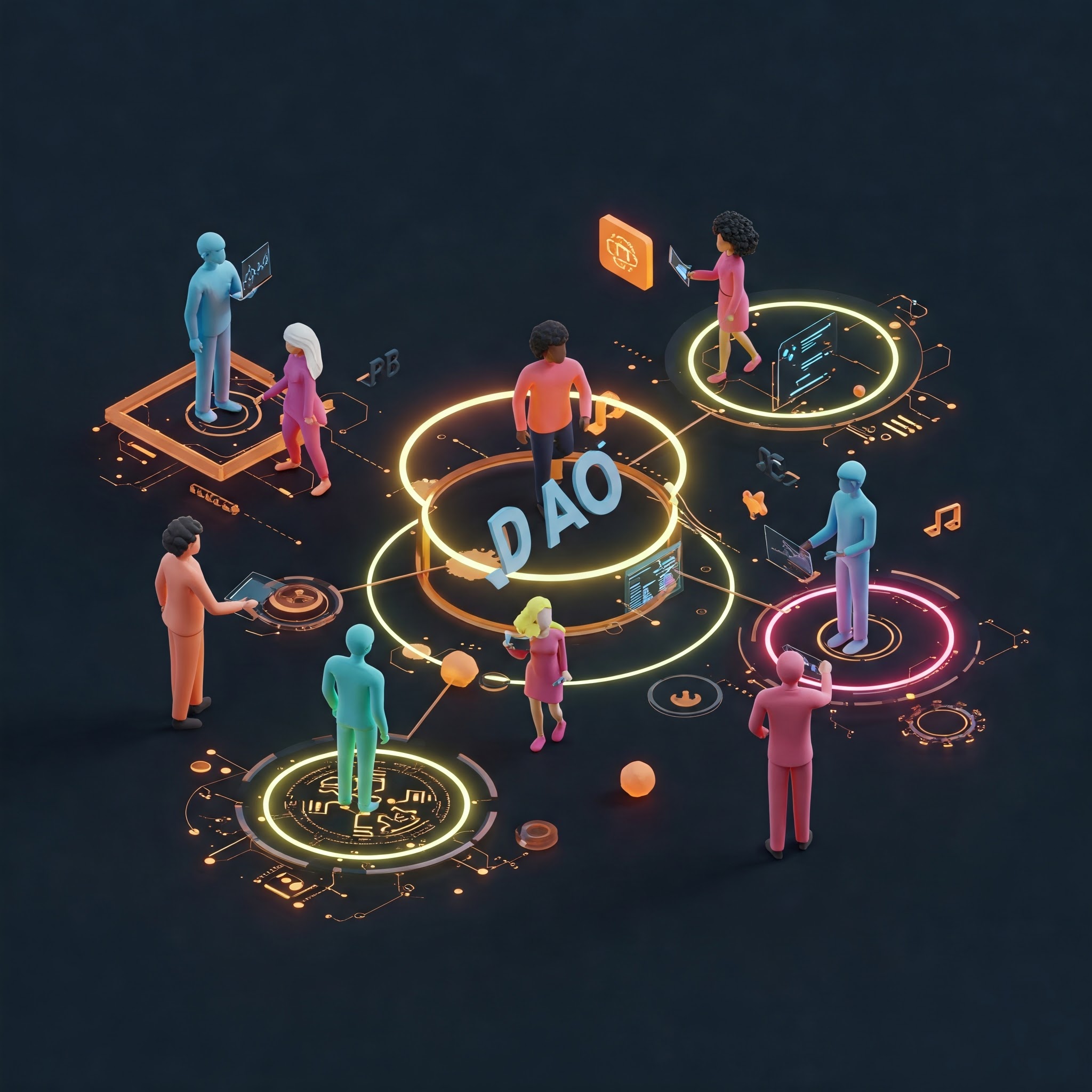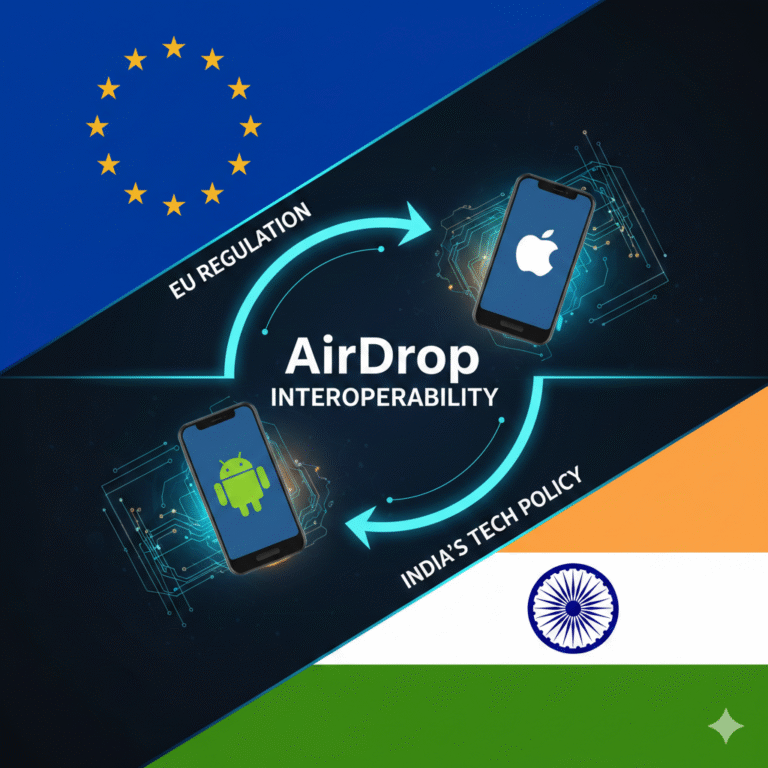In the ever-evolving landscape of technology and governance, a new model has emerged: the Decentralized Autonomous Organization (DAO). DAOs are organizations that operate without a central authority or hierarchical structure.1 Instead, they leverage blockchain technology and smart contracts to facilitate community-driven decision-making and resource management.2 This innovative approach has the potential to revolutionize how organizations are structured and governed, fostering greater transparency, inclusivity, and democratic participation.
Understanding DAOs: Beyond Traditional Structures
Traditional organizations, whether businesses, non-profits, or government entities, typically rely on centralized hierarchies with clear lines of authority.3 Decisions are made by a select group of individuals, often a board of directors or a management team. In contrast, DAOs operate on a decentralized and democratic basis.4
- Community-Driven: DAOs are owned and governed by their members.5 Decisions are made collectively through voting mechanisms, often using blockchain technology to ensure transparency and immutability.6
- Transparent and Secure: Blockchain technology provides a transparent and immutable record of all on-chain transactions and governance decisions, enhancing trust and accountability.7
- Flexible and Adaptable: DAOs can be easily adapted to different needs and objectives.8 Smart contracts can be used to automate processes and enforce rules, making DAOs highly adaptable and efficient.9
- Borderless and Inclusive: DAOs transcend geographical boundaries, enabling individuals from around the world to participate in decision-making and contribute to the organization’s success.10
How DAOs Function
At the core of a DAO lies its treasury, typically managed through smart contracts.11 These contracts define the rules and procedures for managing funds, such as how proposals are submitted, voted on, and executed.12 Members of the DAO hold tokens that grant them voting rights and a share in the organization’s treasury.13
The decision-making process often involves submitting proposals for funding, changes to the DAO’s rules, or other important matters.14 Members then vote on these proposals, and the outcome is determined by the majority vote or a pre-defined quorum.15 Once a proposal is approved, the smart contract automatically executes the necessary actions, ensuring that the rules are followed and the decisions are enforced.
Applications of DAOs
DAOs have the potential to revolutionize various sectors, including:
- Decentralized Finance (DeFi): DAOs are widely used in DeFi to govern decentralized exchanges, lending platforms, and other financial protocols.16
- Social Impact: DAOs can be used to fund and manage charitable projects, support social causes, and empower communities.17
- Governance: DAOs can be used to improve governance processes within communities, organizations, and even governments.18
- Collective Ownership: DAOs can facilitate collective ownership of assets, such as real estate, art, and intellectual property.19
- Gaming: DAOs are increasingly being used in the gaming industry to govern game development, manage in-game economies, and distribute rewards to players.20
Challenges and Considerations
While DAOs offer numerous advantages, they also face several challenges:
- Complexity: Understanding and participating in DAO governance can be complex for some individuals.
- Security Risks: Smart contracts are susceptible to vulnerabilities, which could be exploited by malicious actors.21
- Scalability: As DAOs grow, managing large numbers of members and complex governance processes can become challenging.22
- Regulation: The regulatory landscape around DAOs is still evolving, and there is a need for clear guidelines and regulations.
- Social Dynamics: Managing social dynamics and ensuring fair and inclusive participation within a DAO can be complex.
The Future of DAOs
Despite these challenges, the future of DAOs looks promising. Continued advancements in blockchain technology, coupled with ongoing research and development, will address many of the current limitations.23 As DAOs continue to evolve, they have the potential to transform how we organize and govern ourselves, fostering greater transparency, inclusivity, and democratic participation.
Conclusion
DAOs represent a significant step towards a more decentralized and democratic future. By leveraging the power of blockchain technology and community-driven governance, DAOs offer a new model for organizing and managing organizations, empowering individuals and fostering greater collaboration and innovation.24 While challenges remain, the potential of DAOs to revolutionize various aspects of society is immense.
Frequently Asked Questions (FAQs)
- What is a DAO?
- A DAO is a decentralized autonomous organization, an organization that operates without a central authority.25
- How do DAOs make decisions?
- DAOs use blockchain technology and smart contracts to facilitate community-driven decision-making through voting mechanisms.26
- What are the benefits of DAOs?
- Transparency, inclusivity, flexibility, and adaptability.
- What are the challenges of DAOs?
- Complexity, security risks, scalability, regulation, and social dynamics.
- What are some applications of DAOs?
- DeFi, social impact, governance, collective ownership, and gaming.
- How do I participate in a DAO?
- To participate in a DAO, you typically need to acquire the DAO’s governance token.27
- What are smart contracts and how are they used in DAOs?
- Smart contracts are self-executing contracts written in code that automatically enforce the terms of an agreement.28 They are used to manage DAO funds, enforce rules, and automate processes.29
- Are DAOs legal?
- The legal status of DAOs varies depending on jurisdiction.
- What is the future of DAOs?
- The future of DAOs looks promising, with the potential to revolutionize how we organize and govern ourselves.
- Can anyone join a DAO?
- Membership requirements vary depending on the DAO. Some DAOs are open to everyone, while others have specific membership criteria.
- What are the risks associated with investing in a DAO?
- The value of DAO tokens can fluctuate, and there is always the risk of losing money.30
- How can I learn more about DAOs?
- You can learn more about DAOs by reading articles, watching videos, and participating in online communities.
- What are some examples of successful DAOs?
- MakerDAO, Uniswap, and Compound are some examples of successful DAOs in the DeFi space.31
- How can I contribute to a DAO?
- You can contribute to a DAO by voting on proposals, participating in community discussions, and contributing to the DAO’s development.32
- What are the ethical considerations related to DAOs?
- Ethical considerations include ensuring fair and inclusive participation, preventing manipulation, and mitigating potential risks.33










+ There are no comments
Add yours